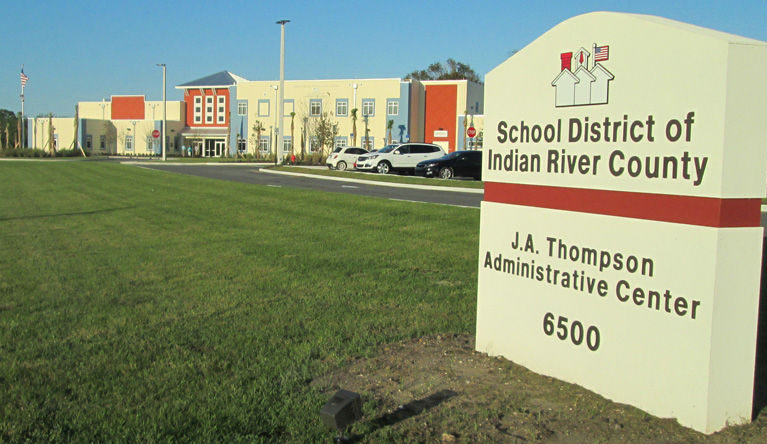
School Superintendent Mark Rendell says the five-year strategic planning process underway at the district is “transparent,” but it does not seem that way.
In a typical move, without consulting the School Board, he hired an outside team of “experts” to develop the plan, leaving it to people not familiar with the community to gather input from parents, students, teachers and other “stakeholders” over a brief three-day period.
The outside consultant, Battelle for Kids, held a grand total of one meeting open to the public – which lasted one hour – to get input from the community in order to come up with a plan for the next half-decade of educating children in Indian River County.
The last strategic plan expired in 2010 and the need for a new one came up while the School Board discussed whether it should purchase the 16th Street ball fields from the county. Rendell and four school board members said the district didn’t need the land, but board member Laura Zorc said, “We don’t know what we need because we don’t have a strategic plan.”
Rendell, with no further discussion with the board, signed a contract with Battelle for Kids for just under $50,000, bypassing the need for the board’s approval and also relegating it to the sidelines. (Expenditures over $50,000 typically require board approval.)
Battelle met with Rendell and his assistant superintendents twice in early February to establish the “expectations, goals, and the approach . . . guiding principles and success criteria” for the plan, charging nearly $20,000 for this part of the process. The public was unaware of these meetings and it is not clear that the School Board knew about them either.
Rendell revealed that he had hired Battelle at a Feb. 28 workshop where he introduced the Battelle team to the School Board. He did not give the board a copy of the district’s contract with Battelle or go over the framework he and Battelle had developed. Zorc was the only board member who asked about the background of the company and members of its Indian River County team.
Battelle employee Susan Amos said she did “events, packaging the message, and public relations.” Bob Moore said he was a principal and superintendent in Ohio, not mentioning that the job was in Mechanicsburg Exempted Village School District, which consists of three schools – an elementary, middle and high school. Kim Ratcliff, the team leader, didn’t give a clear answer and didn’t return phone calls.
Battelle personnel likewise declined to say when asked if they had developed strategic plans for other Florida districts – they have not – and declined to provide out-of-state examples of their work. Research reveals they developed strategic plans for Toledo Public Schools, Princeton Public Schools and Upper Arlington Public Schools, all in Ohio. The plans are each about 10 pages and contain generic goals such as “increase student achievement and growth” and “provide a safe environment for students, staff and stakeholders.”
According to the district’s contract, Battelle was obligated to “facilitate three engagement sessions” over three days in mid-March “that will serve as idea factories to harness the collective wisdom of educators, parents, supporters, and even resistors,” charging nearly $9,000 for this part of the plan.
The Monday, March 13 session was announced just a week beforehand and attracted about 30 people, including school district personnel. Ratcliff said “deep community engagement” was part of the process, but the hour-long session only skimmed the surface of a couple of issues.
Ratcliff handed out a sheet with nine general questions, broke people into four discussion groups and then had them summarize their answers. Most groups got hung up on the first one or two questions during brief 20-minute discussions about the future of county schools.
Only two board members attended, Zorc and Tiffany Justice, with both relegated to observation, not participation.
“Unfortunately the meeting did not meet the level of my expectations,” Zorc said. “It was a very restrictive format with approximately 20 minutes for about 30 attendees to talk as a whole group about targeted changes they wanted to see. Overall the meeting was an hour, not nearly enough time, and it seemed very rushed.”
Rendell did not attend the March 13 strategic planning session, the only one open to the general public. Bruce Green, assistant superintendent of technology and assessment and Rendell’s appointed lead on the strategic plan, said his absence was intentional – he didn’t want anyone to feel inhibited by his presence.
Battelle’s other “engagement sessions” included a meeting with the Learning Alliance and a meeting with charter school representatives. They also walked through some schools in the district.
Rendell and three School Board members did not respond to a request for comment about the strategic planning process.
School Board Member Shawn Frost said, “It is a good addition to the listening the elected members do. The Battelle consultants are more focused in their questioning and are more likely to elicit honest and unbiased responses. While I don’t question the judgment of board members who attended the [Mar. 13] session, I chose not to for the same reason Dr. Rendell mentioned – the ‘observer effect.’ People will come to workshops, business meetings, or set one-on-ones to give board members direct feedback.”
The strategic plan is now being crafted by Rendell and his four assistant superintendents based on Battelle’s penetrating insights and 20 minutes of discussion by a couple dozen members of the public.
A draft is due to the school board by April 14.



